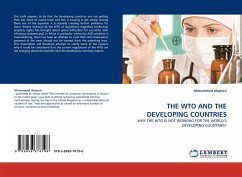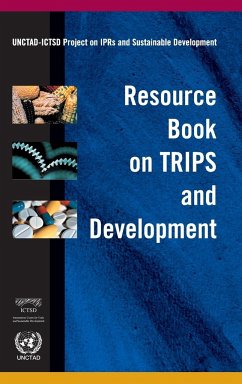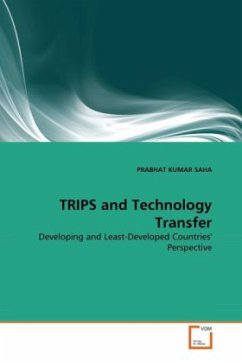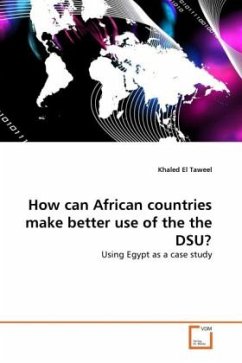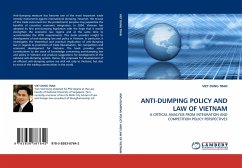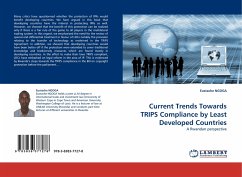
Current Trends Towards TRIPS Compliance by Least Developed Countries
A Rwandan perspective
Versandkostenfrei!
Versandfertig in 6-10 Tagen
32,99 €
inkl. MwSt.

PAYBACK Punkte
16 °P sammeln!
Many critics have questionned whether the protection of IPRs would benefit developing countries. We have argued in this book that developing countries have the interest in protecting IPRs as well. However, we showed that the benefit of this protection can be realized only if there is a fair rule of the game to all players in the multilateral trading system. In this regard, we emphasized the need for the review of special and differential treatment in favour of LDCs notably the provision relating to the transfer of technology as enshrined in the TRIPS Agreement. In addition, we showed that deve...
Many critics have questionned whether the protection of IPRs would benefit developing countries. We have argued in this book that developing countries have the interest in protecting IPRs as well. However, we showed that the benefit of this protection can be realized only if there is a fair rule of the game to all players in the multilateral trading system. In this regard, we emphasized the need for the review of special and differential treatment in favour of LDCs notably the provision relating to the transfer of technology as enshrined in the TRIPS Agreement. In addition, we showed that developing countries would have been better off if the protection were extended to cover traditional knowledge and biodiversity resources which are found mostly in developing countries. In the effort to make their laws TRIPS compliant, LDCs have embarked on legal reform in the area of IP. This is evidenced by Rwanda s steps towards the TRIPS compliance in the Bill on copyright protection before the parliament...



